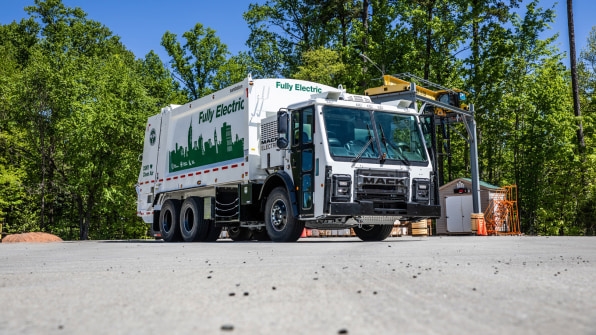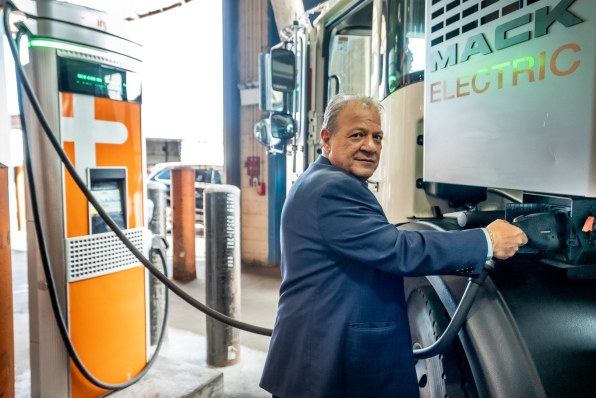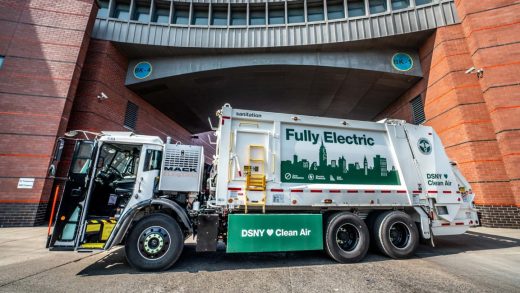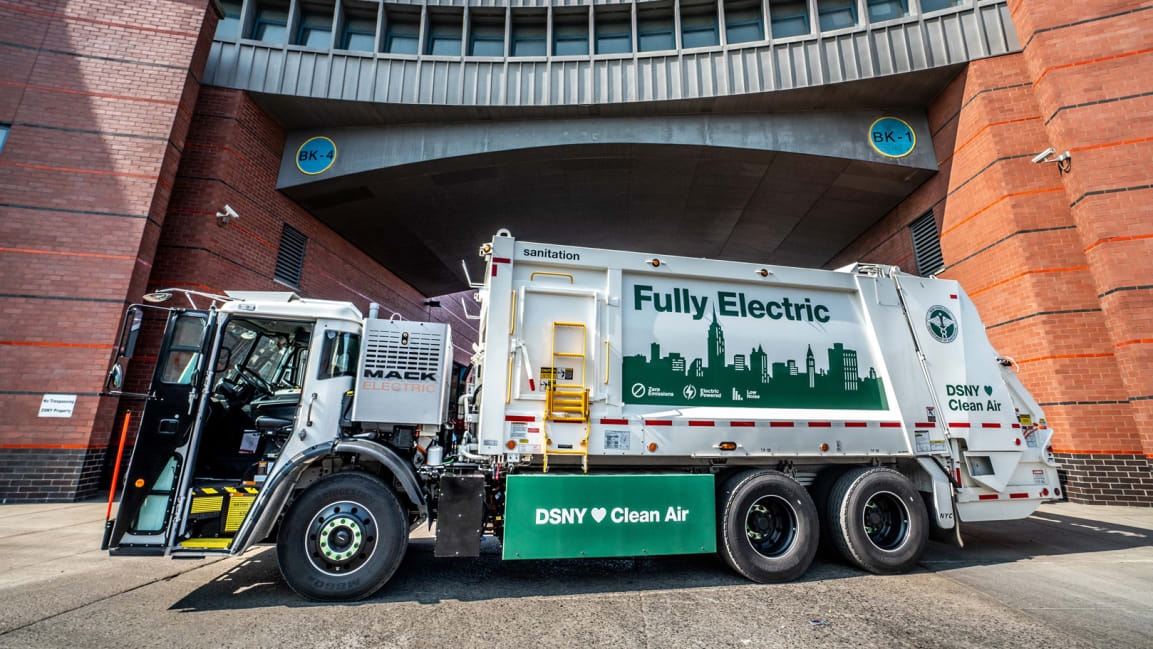New York City is testing electric garbage trucks
A new garbage truck making the rounds on Brooklyn streets might look similar to the thousands of other garbage trucks in New York City. But it’s nearly silent, and there isn’t a tailpipe belching diesel emissions. Huge letters on the side of the truck spell out the difference: “Fully Electric.”
“This is an environmental justice issue and a quality-of-life issue,” says Joshua Goodman, a spokesperson for the New York City Department of Sanitation, explaining that moving to electric heavy equipment is a key way for the city to reduce emissions. Electric garbage trucks, like other electric vehicles, can help reduce air pollution that’s linked to thousands of premature deaths in the city each year. The technology could also help the city work toward its goal to become carbon neutral by 2050. By 2040, the city is planning to electrify its entire fleet.

In a new pilot, the city is testing the new LR Electric from Mack, seeing how it performs on a typical 12-hour route through 20-25 miles of busy streets. In some ways, garbage collection is well-suited for electrification: The constant starts and stops mean that regenerative braking—where energy from the brakes helps charge the battery—is especially potent. Electric motors also work particularly well at low speeds. And the routes are predictable, with time for the trucks to charge when they’re not in use.
For now, the vehicles cost more than their diesel equivalents, though they’re cheaper to operate. “The electricity required to ‘fuel’ the truck is cheaper than the equivalent amount of diesel, and we also anticipate savings from reduced maintenance needs, including no engine oil changes and no after-treatment maintenance,” says Jonathan Randall, senior vice president for sales and commercial operations in North America from Mack Trucks.

Electric garbage trucks have been in development for several years; one of Tesla’s cofounders has been working on powertrains for garbage trucks and other large vehicles since 2005. But as cities step up climate commitments and battery costs continue to drop, the vehicles are finally beginning to be adopted. Republic Services, the second-largest waste management company in the U.S., recently announced that it would buy 2,500 electric garbage trucks from the EV startup Nikola, with an option to increase the order to 5,000 (though Nikola is now under serious scrutiny for its claims about how far along its technology is). Recology, another waste management company, is testing electric garbage trucks from the Chinese EV company BYD. Los Angeles will stop buying fossil-powered garbage trucks by 2022 and plans to have an all-electric fleet by 2035.
If the pilot is successful, New York may not immediately be able to order more trucks. Like other cities, it’s taken a budget hit from the pandemic (the Department of Sanitation is facing a $106 million cut this year). That will slow down the adoption of electric trucks. Because the upfront cost is higher, cities will also need some support in general. “In the early phases of deployment, given the very high upfront costs, it is essential for federal, state, and regional governments to incentivize vehicle and infrastructure purchases to increase the penetration rate,” says Randall. “As the market develops, these incentives can be phased out.”
(34)



